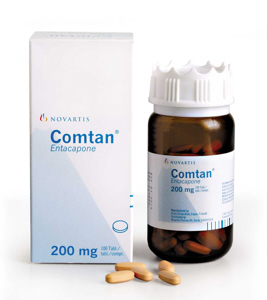.gif) VIARTIS
|
||||||||||
|
PARKINSON'S DISEASE NEWS |
||||||||||
|
|
||||||||||
|
|
JANUARY 2016
18th January 2016 - New research 20 PER CENT WITH PARKINSON'S DISEASE ARE MISDIAGNOSED
An extensive study, carried out over the last 25 years, has shown that around 20% of people diagnosed with Parkinson's Disease have been misdiagnosed. The expertise of the person making the diagnosis did not make a considerable difference.
The accuracy of diagnosing Parkinson's Disease was found to have not significantly improved in the last 25 years. The overall validity of clinical diagnosis of Parkinson's Disease is far from satisfying. This is particularly true in the early stages of Parkinson's Disease, when the response to dopaminergic treatment is less defined and hallmarks of alternative diagnoses such as atypical Parkinsonism may not have emerged. For more concerning the methods of diagnosing Parkinson's Disease go to : Diagnosis of Parkinson's Disease Reference : Neurology [2016] Jan 13 [Epub ahead of print] (G.Rizzo, M.Copetti, S.Arcuti, D. Martino, A.Fontana, G.Logroscino) Complete abstract In order to refer to this article on its own click here
7th January 2016 - New research OPICAPONE - NEW COMT INHIBITOR FOR PARKINSON'S DISEASE
Opicapone is a COMT inhibitor presently being assessed as a possible replacement for the COMT inhibitor Entacapone in its use in Parkinsons' Disease. COMT inhibitors are added to the use of L-dopa to enhance its effect because COMT inhibitors help to prevent the breakdown of L-dopa. Entacapone is presently the most widely used COMT inhibitor for use in Parkinson's Disease. For more information go to : Entacapone
Reference : Lancet Neurol [2015] Dec 22 [Epub ahead of print] (J.J.Ferreira, A. Lees, J.F.Rocha, W.Poewe, O.Rascol, P.Soares-da-Silva) Complete abstract In order to refer to this article on its own click here
|
|
||||||||
.gif) |
||||||||||
| �2006-2016 Viartis | ||||||||||
| [email protected] | ||||||||||

